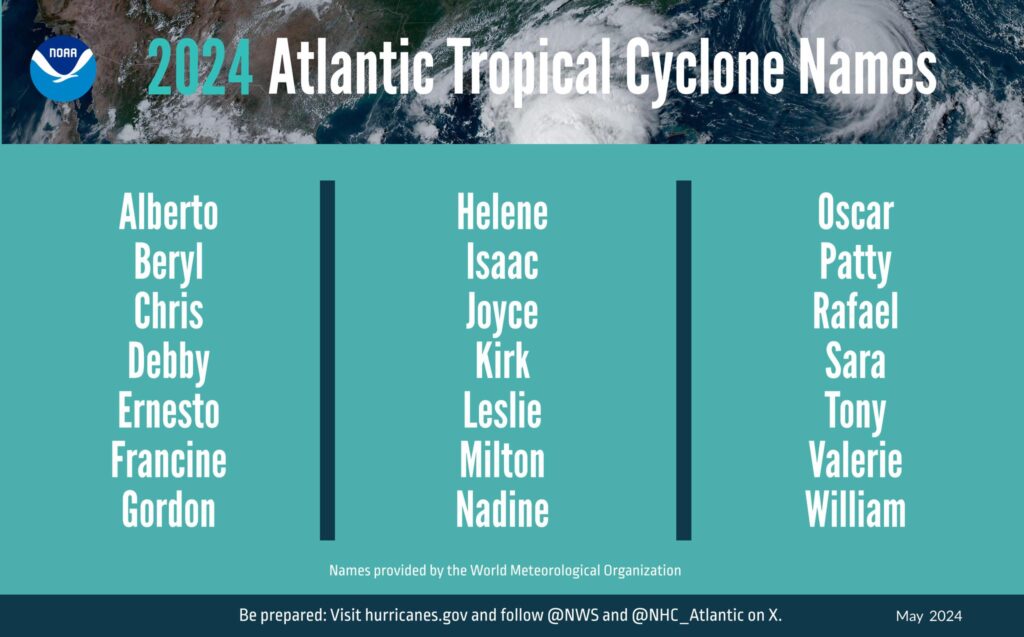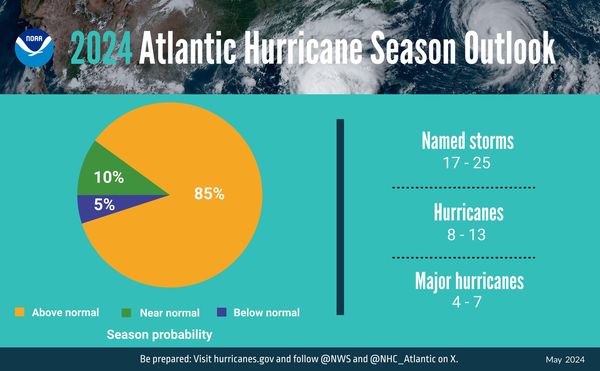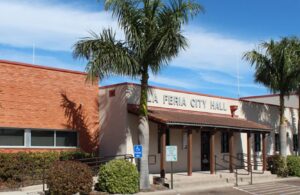- La Feria Community Holds Succesful Business Mixer Event
- Little Nashville to Take Place in Downtown Mercedes
- Lions Basketball Captures District Gold
- La Feria ISD Students Compete in Regional Chess Tournament
- Lions End First Half of 32-4A on a High Note
- La Feria ISD Held Another Successful Parent Conference
- Strong Appearance for Lions at Hidalgo Power Meet
- LFECHS Students Get to Meet Local Actress
- Students Participate in Marine Biology Camp
- Two LFECHS Students Qualify for All-State Band
Be Prepared for an Active Hurricane Season
- Updated: June 20, 2024

By Mike Villarreal
The 2024 Atlantic hurricane season, officially spanning from June 1 to November 30, is anticipated to exhibit a significant increase in activity. It’s crucial to understand that weather patterns, while unpredictable, are showing strong indications of a potentially severe season.
According to the National Oceanic and Atmospheric Administration (NOAA), there is an 85% likelihood of an above-normal hurricane season, a 10% probability of a near-normal season, and a 5% chance of a below-normal season. Various contributing factors, such as near-record warm ocean temperatures in the Atlantic, the emergence of La Niña conditions in the Pacific, diminished Atlantic trade winds, and reduced wind shear, all point to the expected heightened activity. La Niña, characterized by cooler-than-average waters in the Eastern Pacific Ocean, has the potential to decrease wind shear in the Tropical Atlantic Ocean, leading to an increased frequency and intensity of storms.
Additionally, the record warm water temperatures in the Main Development Region elevate the likelihood of storms impacting the Gulf or Atlantic. However, it’s essential to bear in mind that the impact is not guaranteed, and the presence of dry, dusty air from Africa can impede the development of tropical systems. This unpredictability underscores the need for proactive preparedness and exercising caution.
As we approach the potentially challenging 2024 hurricane season, it’s crucial for each of us to take personal responsibility and have a thorough preparedness plan in place. This should involve steps such as creating an evacuation strategy, stockpiling essential supplies like non-perishable food, water, batteries, a radio, chargers, and cash, establishing a communication plan with emergency contacts, and securing your home against potential weather-related hazards. Ensure that your plan covers everyone in your household, including children, elderly individuals, those with special needs, and pets.

Also, be prepared to address any existing or unexpected medical conditions. Small items such as matches, flashlights, a multi-purpose tool, and a whistle can make a significant difference for your family during the storm. Additionally, gather and protect important financial, medical, educational, and legal documents. Store electronic copies of these documents in a waterproof bag. Taking these steps can significantly improve your safety and that of your loved ones during a hurricane. If evacuation becomes necessary, check with the Texas Department of Transportation for evacuation routes. Keep an eye out for instructions from local officials as well. To locate a shelter near you, download the FEMA app at fema.gov/mobile-app.
Information and photos from noaa.gov




